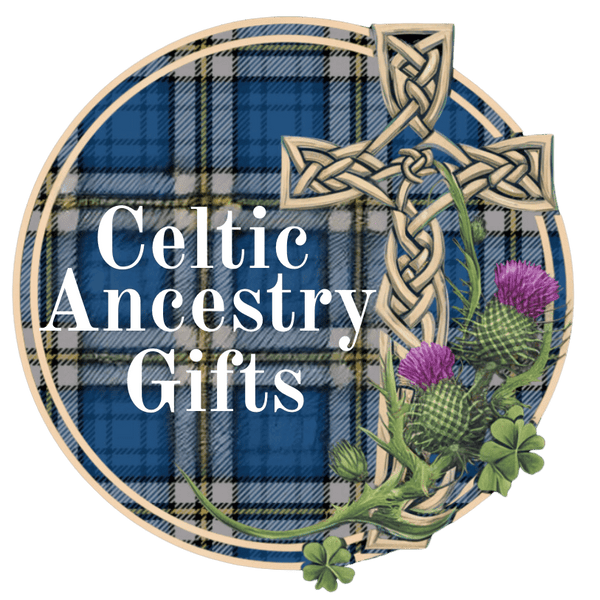
Unveiling the History of the Scottish Clan MacNicol: A Journey Through Time
Share
A Journey Through Time: Exploring the History of Clan MacNicol
The MacNicols, a proud and distinguished clan with roots deeply embedded in the history of Scotland, hold a rich and captivating lineage. Their name, derived from the Gaelic "Mac an t-Saoir" meaning "son of the carpenter", speaks to the craftsmanship and skills that have characterized this clan for generations. Their story, interwoven with the fabric of Scottish history, is a testament to resilience, loyalty, and the enduring spirit of the Highlands. From their origins in the 12th century to their enduring presence in the modern world, the MacNicols have played a significant role in shaping the cultural landscape of Scotland.
Early Origins and the Lordship of the Isles
Tracing their origins back to the 12th century, the MacNicols are believed to have descended from a branch of the Clan Donald, one of the most powerful and influential clans in Scottish history. The clan's seat was traditionally in the Isle of Skye, a rugged and beautiful island off the west coast of Scotland. Here, they flourished under the patronage of the Lords of the Isles, a powerful dynasty that ruled over the Western Isles and much of the Highlands for centuries.
The Lords of the Isles, with their vast domains and strategic location, wielded considerable influence over the affairs of Scotland. The MacNicols, as loyal vassals, played a vital role in supporting the Lords of the Isles, providing warriors and resources to their campaigns. The clan's history is intricately intertwined with the rise and fall of this powerful dynasty.
The MacNicols and the Turbulent History of the Highlands
The history of the Highlands was marked by frequent conflicts and feuds, as clans vied for power and influence. The MacNicols, like many other clans, were deeply involved in these struggles. They participated in battles, raids, and skirmishes, often fighting alongside their allies against their rivals. These conflicts shaped the clan's identity and fostered a strong sense of loyalty and brotherhood among its members.
The MacNicols' loyalty to the Lords of the Isles also led them to engage in conflicts with the Scottish Crown. The Scottish monarchs, wary of the power and influence of the Lords of the Isles, sought to curtail their authority. The MacNicols found themselves caught between these opposing forces, their loyalties tested and their fortunes often tied to the fortunes of their patrons.
The Clan System and the Highland Way of Life
The MacNicols, like many other Scottish clans, lived by the clan system, a complex and multifaceted social structure that governed life in the Highlands for centuries. Under this system, clan members were bound by ties of kinship, loyalty, and a shared sense of identity. The clan chief, the head of the clan, held significant authority and responsibility, providing leadership and protection to his people.
The clan system extended beyond the realm of warfare and politics. It also encompassed a shared way of life, with customs, traditions, and beliefs that were passed down through generations. The MacNicols, like other clans, had their own distinct tartans, emblems, and songs, which served as symbols of their identity and heritage.
The Impact of the Highland Clearances
The 18th and 19th centuries marked a tumultuous period in Scottish history, known as the Highland Clearances. Driven by economic factors and a desire to control the Highlands, landowners evicted tenants and their families from their ancestral lands, forcing them to migrate to other parts of Scotland or overseas. The MacNicols, like many other clans, were deeply affected by these events, which disrupted their way of life and shattered their communities.
Despite the hardships they faced, the MacNicols, like many other clans, remained resilient. They adapted to the changing circumstances, finding new opportunities and forging new communities in different parts of Scotland and abroad. Their legacy, however, remained deeply rooted in the Highlands, where they continue to be remembered and celebrated for their contributions to Scotland's history and culture.
Celebrating Clan MacNicol Heritage: Treasures for Every Home
For those seeking to honor their Scottish heritage or simply admire the legacy of this proud clan, there are a range of exquisite products designed to showcase the unique identity of the MacNicols. From decorative ornaments to cozy blankets, these items are perfect for adding a touch of history and elegance to any space.
To celebrate the Christmas season with a touch of Scottish pride, the MacNicol Clan Crest Christmas Ceramic Ornaments are a wonderful choice. These ornaments, featuring the clan crest on a tartan background, make a beautiful and meaningful addition to your Christmas tree. 
For those seeking a more personal touch, the MacNicol Clan Custom Tartan Crest Emblem Mug is a delightful option. This mug, featuring the distinct tartan and crest of Clan MacNicol, is a perfect way to enjoy your morning coffee or tea while showcasing your clan pride. 
If you're looking for a comfortable and stylish way to express your MacNicol heritage, the MacNicol Scorrybreac Scottish Clan Crest St Andrews T-Shirt is an excellent choice. This T-shirt, featuring the clan crest and the historic St Andrews flag backdrop, is a striking and versatile addition to any wardrobe. 
For those seeking a cozy and comforting piece of clan heritage, the Scottish Clan MacNicol Tartan Design Throw Blanket is a perfect choice. This blanket, adorned with the unique MacNicol tartan and clan emblem, is a beautiful and practical addition to any home. 
The story of Clan MacNicol is a testament to the resilience, loyalty, and enduring spirit of the Scottish people. Their history, marked by both triumphs and trials, reflects the larger narrative of the Scottish Highlands, a region that has been shaped by both conflict and cooperation. By embracing their heritage and celebrating their achievements, we can honor the legacy of this proud clan and ensure its continued presence in the hearts and minds of generations to come.
